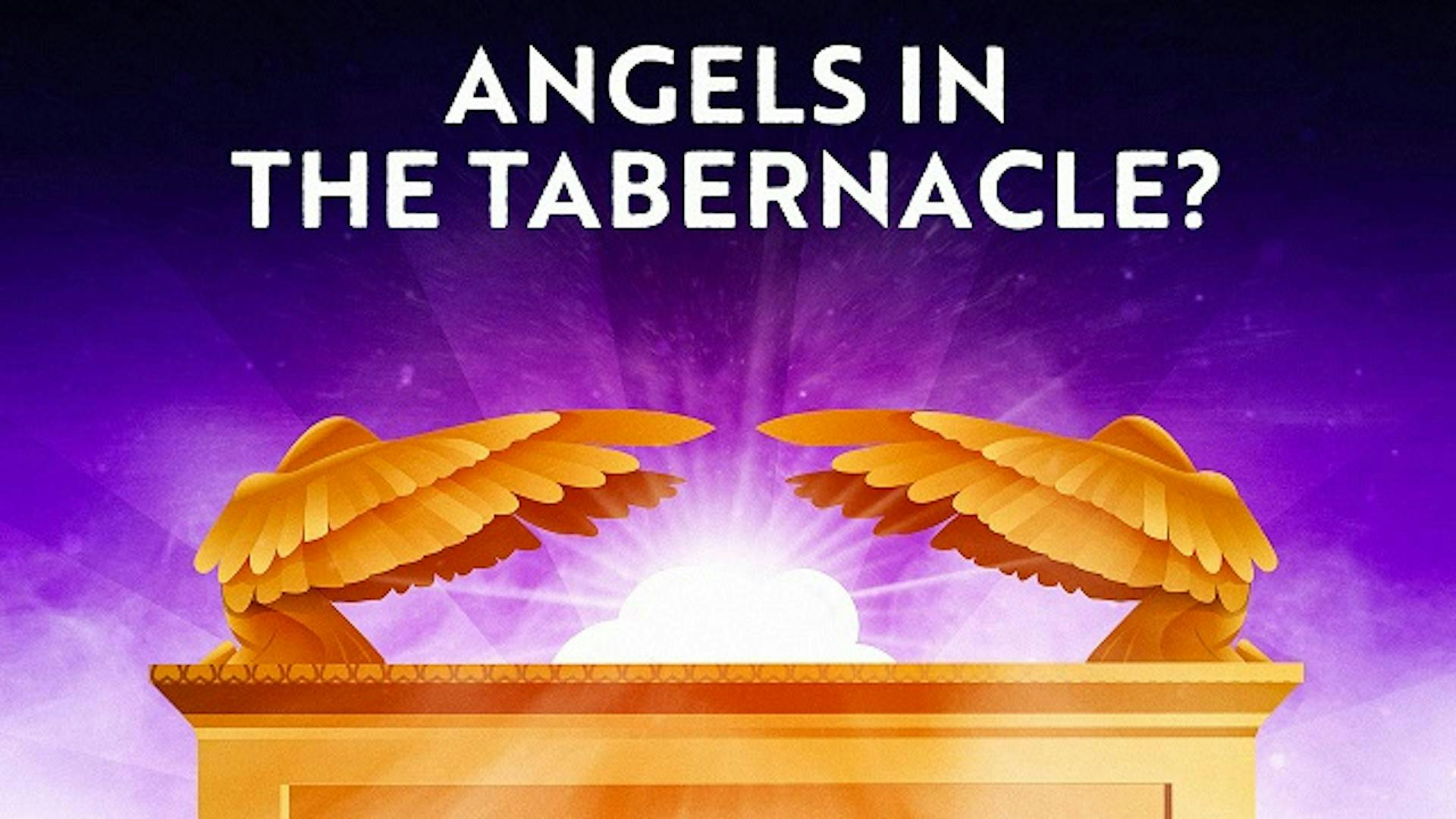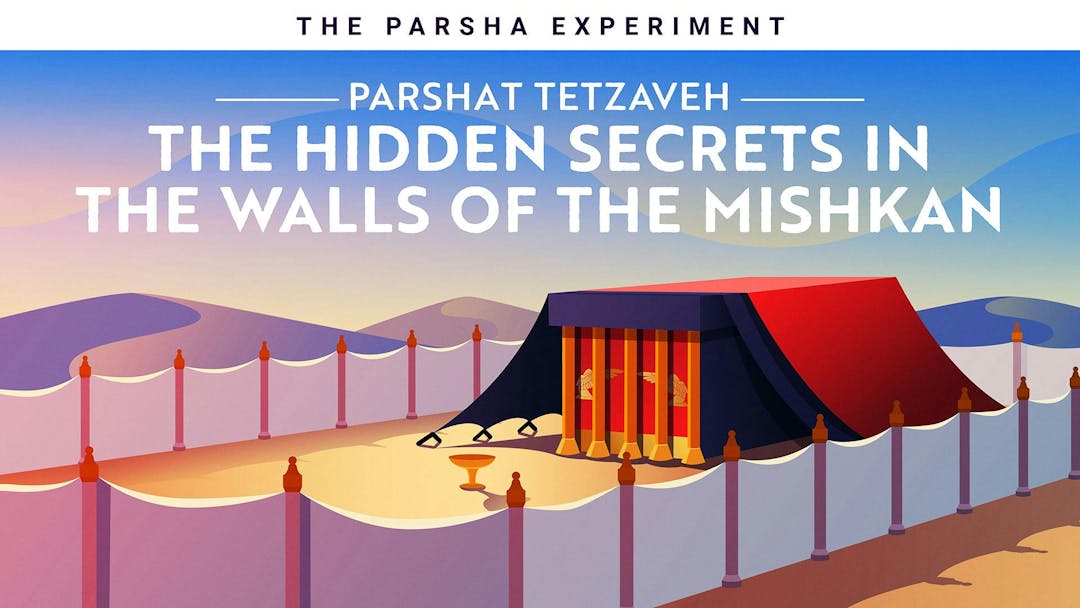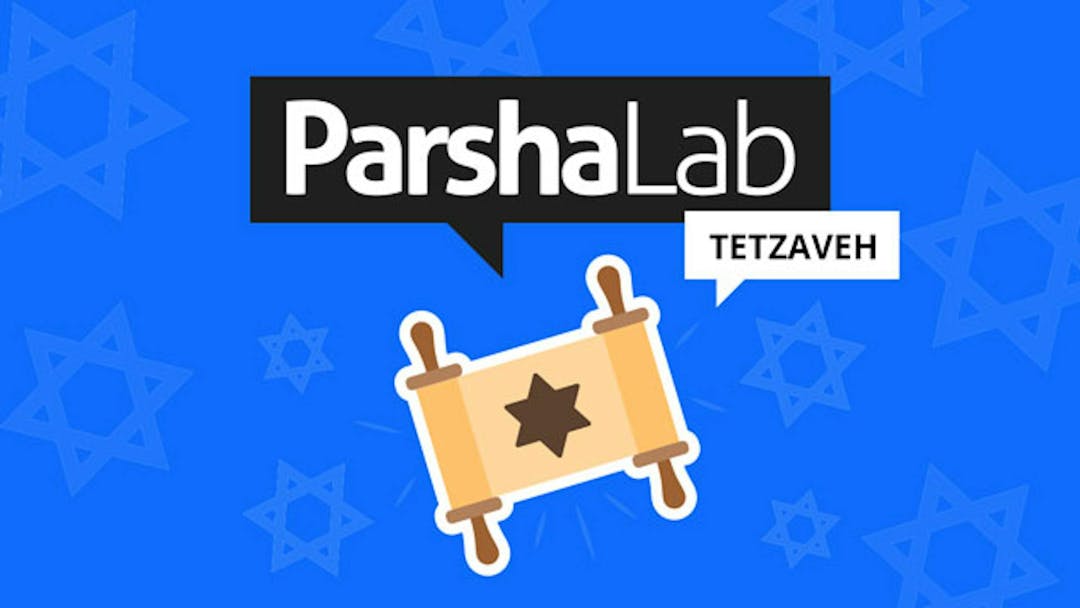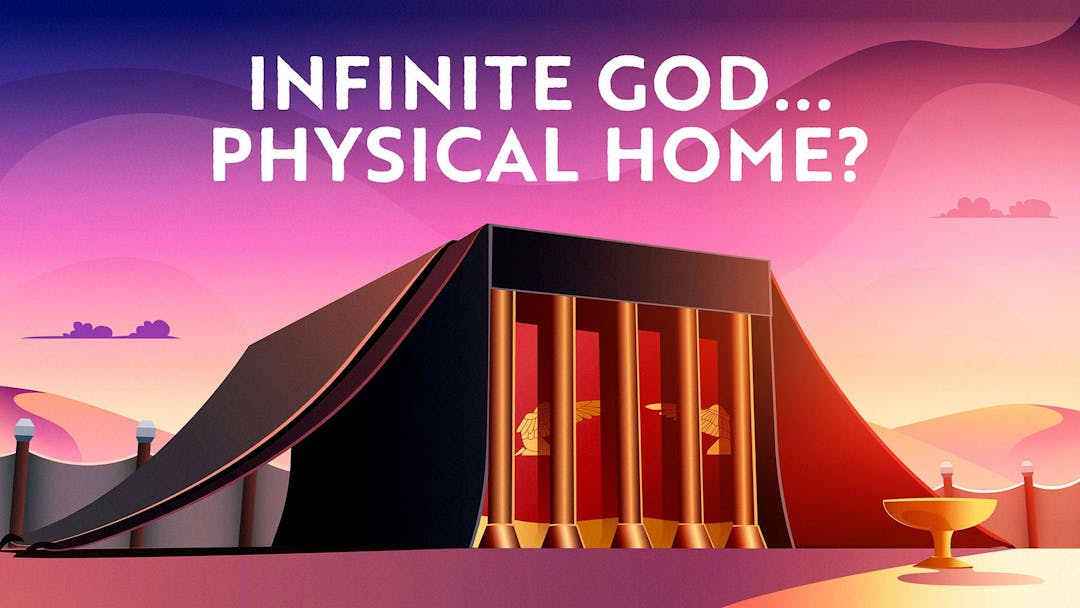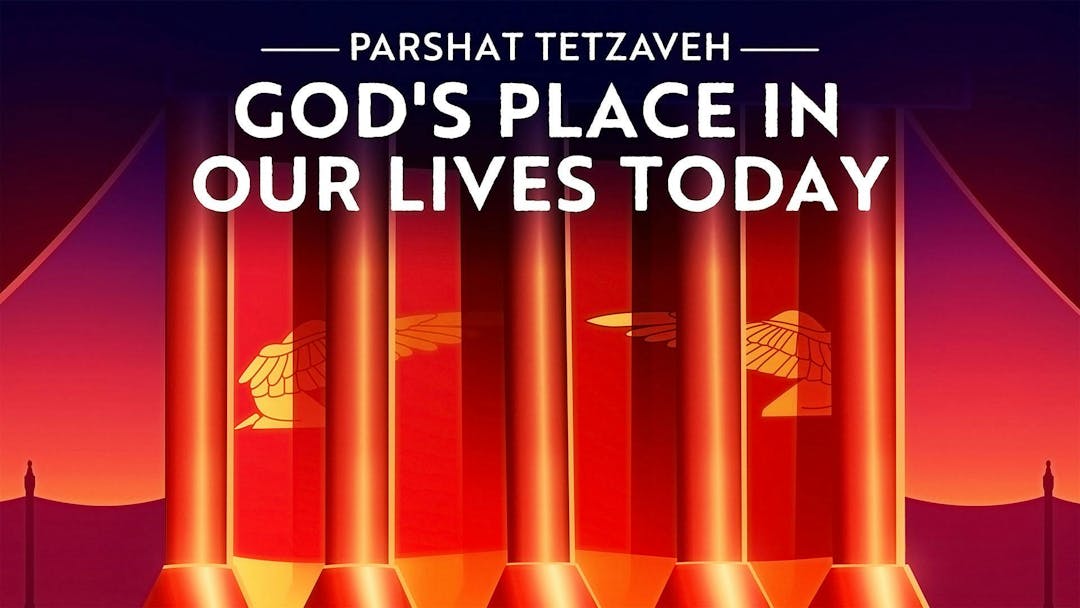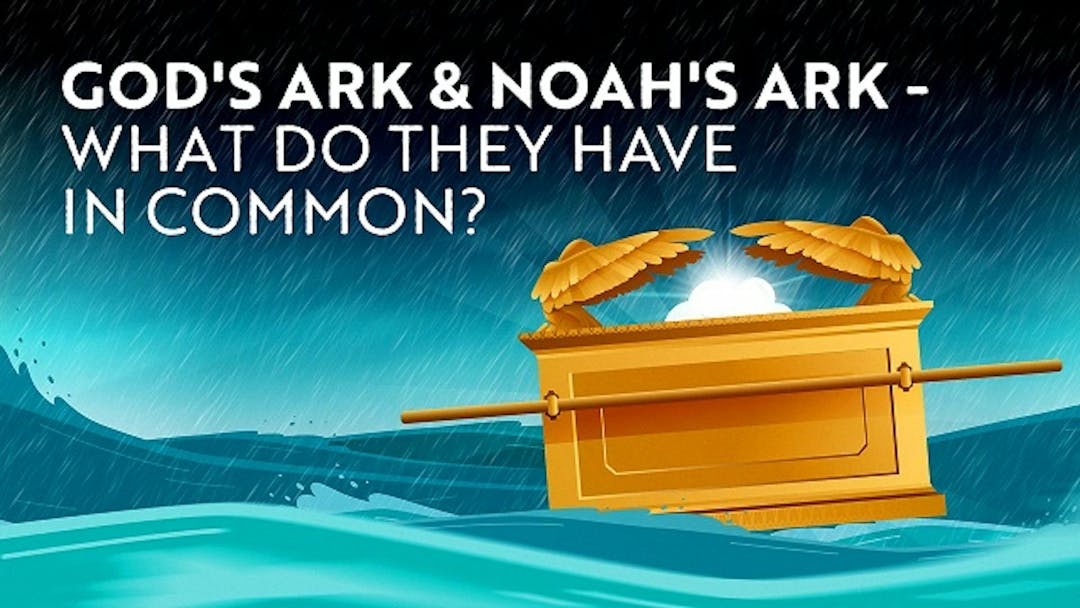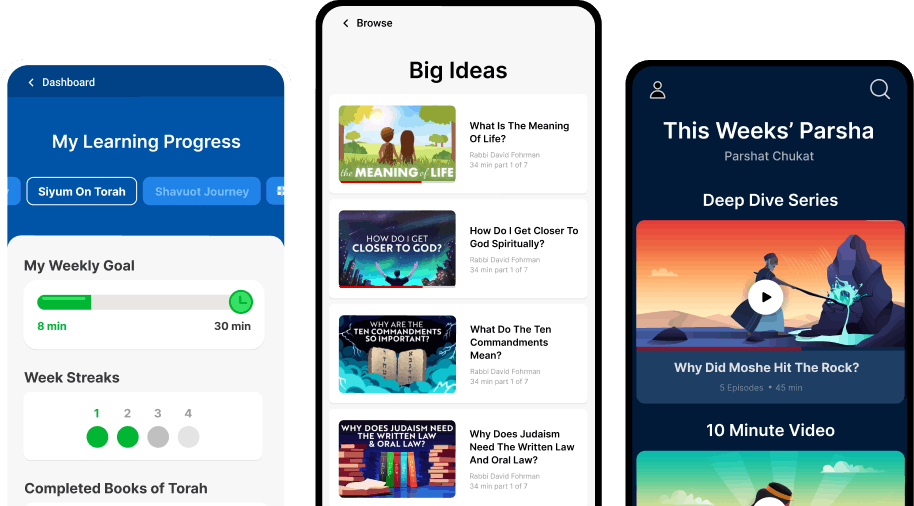Parsha of the week: Parshat Tetzaveh
Parsha Date:
February 28, 2026
Torah Verses:
Exodus 27:20–Exodus 30:11
What is this week’s parsha? The weekly Torah portion changes each week and is read on the Sabbath. God makes Aaron and his sons the priests of Israel who job it is to maintain God's Tabernacle. Aaron's priestly uniform is ornate. It is his job to run the Tabernacle and any sacrifices made.
More Videos on This Week’s Parsha: Tetzaveh
Weekly Parsha Learning Guides
Tetzaveh: What If God Has A Physical Presence In This World?
Printable Guide
A printable parsha guide for our Tetzaveh video, "What If God Has A Physical Presence In This World?"
Tetzaveh: Angels In The Tabernacle? Part 2
Printable Guide
A printable parsha guide for our Tetzaveh video, "Angels In The Tabernacle? Part 2."
Sign up for weekly Parsha Emails straight to your inbox.
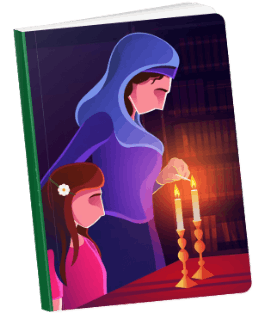
Parsha Calendar & List:
Torah Portion By Date For 2026
Use the tool below to discover the full list of Torah Portions for the coming year, with links to videos and guides.

Genesis
Genesis
We begin the Book of Bereishit with the amazing creation of the world. Reading Genesis takes us on a journey through the stories of Abraham, Isaac, and Jacob, where we witness the birth of the future 12 tribes of Israel. We read about sibling rivalry, deceit, betrayal and love affairs – all provoking questions that apply to our lives today.
What is Aleph Beta?
Aleph Beta is a unique kind of Torah library. Led by our founder, Rabbi David Fohrman, we are dedicated to high-level, textual Torah learning for adults that is intellectually and spiritually sophisticated, that enlivens your Jewish practice and helps you forge a deeper connection to God. Whether you’ve been learning in yeshiva for years or you’re just beginning your Torah journey, you’re sure to find something meaningful and surprising waiting for you here.
Browse our library of over 1,000 beautifully produced animated videos, podcasts, deep dive courses, and printable guides. Topics include the weekly parsha, Jewish holidays & fast days, laws & mitzvot, prayers, relationships, big philosophical ideas and more. Have something to say at the Shabbos table that will amaze your family and guests and bring deep meaning into their lives.

Our Mission
Aleph Beta’s mission is to create relevant Jewish learning, to help people achieve answers that are meaningful and satisfying for their everyday life. Our Torah videos and guides help you look at some of life’s biggest questions, by taking you on a deep journey through the text of the Torah. We believe Torah study should be evidence-based, intellectually stimulating, and emotionally gripping.

We're a Nonprofit
Aleph Beta is a nonprofit organization, funded with the help of dedicated supporters. For a membership fee of $9 a month, more than 7,000 members help us bring the Torah to life. Together with our world-renowned educators, Aleph Beta is building an online library to make the amazing messages in the Torah available to students all over the world.

We Bring Torah to Life
Through animated Torah Videos and a multisensory experience, Aleph Beta helps bring Torah to life. The introspective content appeals to sophisticated audiences, but the animated style works to engage even young or beginner audiences. Our students should decide for themselves what they believe is compelling, and in this way, we strive to keep our Torah study honest and compelling.
Frequently Asked Questions
about the Weekly Torah Portion
“Torah” can take on different meanings, depending on the context. Generally, Torah refers to the first books of the Bible, known as the Five Books of Moses or Pentateuch – Genesis, Exodus, Leviticus, Numbers and Deuteronomy – and often encompasses rabbinic commentaries as well (perushim).
In Rabbinic literature, Torah is often used to refer to both the Five Books ( תורה שבכתב; “Torah that is written“) and Oral Torah (תורה שבעל פה, “Torah that is spoken“). The word Torah translates to “instruction,“ and in its broadest sense, some people may even use it to refer to the full Tanakh or the whole body of Jewish teachings and law.
The Torah makes up the first section of the Tanach – the Hebrew Bible, or what Christianity refers to as the Old Testament. Tanach is an acronym referring to its three parts: Torah, Nevi’im (Prophets) and Ketuvim (Writings).
The words of the Torah are traditionally handwritten in Hebrew by a scribe (sofer) on a parchment scroll. These scrolls are read from in synagogue services, broken up into separate Torah portions to spread the readings over the course of a year. Public Torah readings are at the heart of Jewish communal life.
The Five Books of Moses are divided into 54 portions (Parshiyot), linked to a specific week in a leap year. In non-leap years, with fewer weeks, some shorter Torah portion readings are combined into one week. Each weekly Torah portion takes its name from the first word or distinctive phrase of the passage. The Torah is divided into portions of two to six chapters each week, with added corresponding readings from the Prophets (Haftarah portions). The Torah reading cycle starts after the Feast of Tabernacles, with Genesis 1:1, and finishes with the last verses of Deuteronomy around 12 months later. Jewish communities celebrate the annual completion of the Torah reading with a holiday known as Simchat Torah or “Rejoicing in the Law.”
The Torah is divided into portions of two to six chapters each week, with added corresponding readings from the Prophets (Haftarah portions). The Torah reading cycle starts after the Feast of Tabernacles, with Genesis 1:1, and finishes with the last verses of Deuteronomy around 12 months later. Jewish communities celebrate the annual completion of the Torah reading with a holiday known as Simchat Torah or “Rejoicing in the Law.”
After God saved the Israelites from captivity and restored the Jewish nation, Ezra the scribe wanted to ensure their people would not fall off the wagon again, as we read about in the Book of Nehemia, so he created a system to ensure we would read the text of the Torah each week at synagogue. Thousands of years later, Jewish communities all around the world still study the same portion of the Torah in unity.
An aliyah, עליה, is the honor of being called to read a blessing over a segment of the Torah. In synagogue, members from the congregation are chosen to go up to the bimah (podium) and recite two blessings (one before the reading, and one after) to thank God for the Torah.
Haftarah portions – or Haftoroh in Ashkenazic, or “Concluding Portion” – are selections from the books of Nevi’im (Prophets) of the Hebrew Bible. They are also publicly read – rather, sung or chanted – in synagogue services, following the Torah reading each Sabbath, holidays and fast days. There is usually a thematic link to the weekly Parsha.
Jewish communities read the relevant Torah portion aloud in synagogues on Sabbaths, as part of the prayer service. The first section of the Torah portion is also read on Mondays and Thursday mornings, an origin that stems from older days, when rural people would go to town to visit the market on those days.
On Saturday afternoons, Mondays, and Thursdays, the start of the next week’s portion is read. Special Torah portion readings are also associated with Jewish holidays, Rosh Chodesh and fast days. A Torah reading generally refers to the whole service, including the grand removing and replacing of the scrolls in the Torah Ark.

